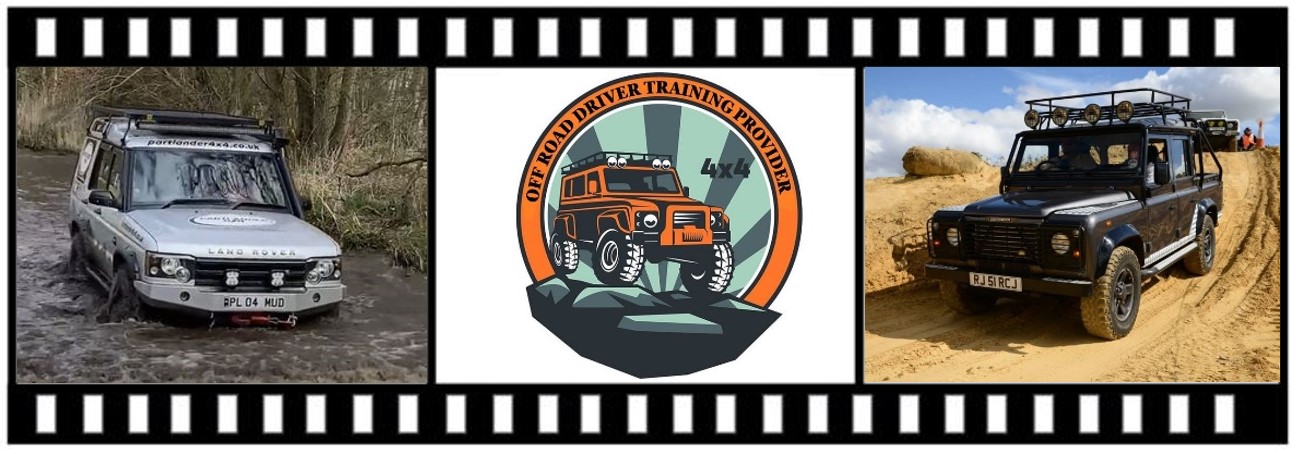Lantra courses we offer.
Off Road Vehicle Operating (4×4)
At a glance…
Training (with Assessment) Competence with Modules

Introduction
Boost your confidence and know-how to tackle the toughest challenges that the land – and the unpredictable British weather – can throw at you.
Overview in brief
Anyone driving an off-road vehicle will benefit from our targeted courses.
You may be looking to update your skills or get on board with the latest health and safety Regulations regarding the safe use of 4×4 off road vehicle operating at work.
Perhaps you want to practise driving across challenging terrain or mastering your vehicle in difficult weather conditions.
Whatever your needs, our courses will get your off road driving skills up to speed.
All our courses are aimed at 4×4 drivers, but we’re happy to include other vehicles, such as 6x4s and 6x6s.
The finer details
Two certificate options are available:
Option 1 – Principles of Off Road Vehicle Operating.
Ideal if you’re only looking to tackle basic off road challenges. Geared for driving in normal conditions, you’ll only be facing a limited range of obstacles. There will be risk, but it’s kept to a minimum.
Option 2 – Operating Vehicles in Off Road Adverse Conditions.
This is all about mastering more severe tests, including tough weather conditions. It will challenge both you and your vehicle, with a wide range of obstacles to tackle. You’ll also learn how to identify and manage risk safely.
What’s Involved?
Both options involve key theory and practical sessions:
- Introduction
- Health and safety
- Attributes of vehicles and systems
- Attributes of obstacles
- Attributes of operators
- Vehicle checks and preparation
- Basic operating techniques
- Vehicle recovery, safety briefing Off road to on road checks.
If you’ve already had accredited training, you still might need a refresher course if:
- Your last training was completed more than five years ago
- You’ve had a recent incident or near miss
- A new vehicle means it’s time for a skills brush-up.
To join our courses all you’ll need are basic driving skills. But you’ll be off road, not on holiday, so you’ll need to wear suitable clothing and proper shoes.
Worth noting: Smaller off road vehicles (ATVs for instance) and some larger, heavier or specialist vehicles (think tractors) are catered for by different Lantra Awards training courses.
What will be covered?
By the end of the course, you’ll be able to:
- Comply with legal requirements and safe practice
- Identify risks associated with off road vehicle use
- Select and use appropriate personal protective equipment (PPE)
- Understand the main causes of accidents
- Identify the controls, systems and components of your vehicle
- Perform pre-start checks
- Identify and report faults
- Prepare your vehicle for use off road
- Assess the suitability of both ground and route
- Make structured decisions about if, and how, to tackle obstacles
- Perform a failed hill climb
- Drive over a variety of terrain
- Perform an on-site risk assessment
- Identify loading and towing capacities
- Understand legal and practical requirements for travelling on a public road
- Identify the dangers of vehicle recovery/self-recovery
- Demonstrate expert decision-making about obstacles, your vehicle’s capabilities, and your own driving skills
Severe Weather & Off-Road Driving – One Day
S.W.O.R.D
We are proud to offer this course on licence from our friends at Terrafirma Training (TFT)
Introduction
This course enables the trainee/operator to understand the principles of driver/operator best practice and the implementation of control measures in the safe day-to–day operation of varying types of vehicles, varying severe weather conditions and to realise the possible hazards and health & safety implications of its use.
Course Objectives
On completion of this course each trainee will have been given the information enabling him/her to:
Identify health & safety requirements and be able to carry out a risk assessment before operating any type of vehicle.
Comply with legal requirements emphasising safe best practice.
Correct use of Personal Protective Equipment (PPE)
Transmission wind-up.
Identify and report faults.
Prepare the vehicle for the task at hand.
Understand their own capabilities.
Understand the vehicles capabilities; including any additional equipment, such as raised air-intake,winches etc.
Carry out an assessment of the weather conditions for any such task.
Understand the risks involved in driving/operating in severe weather conditions



